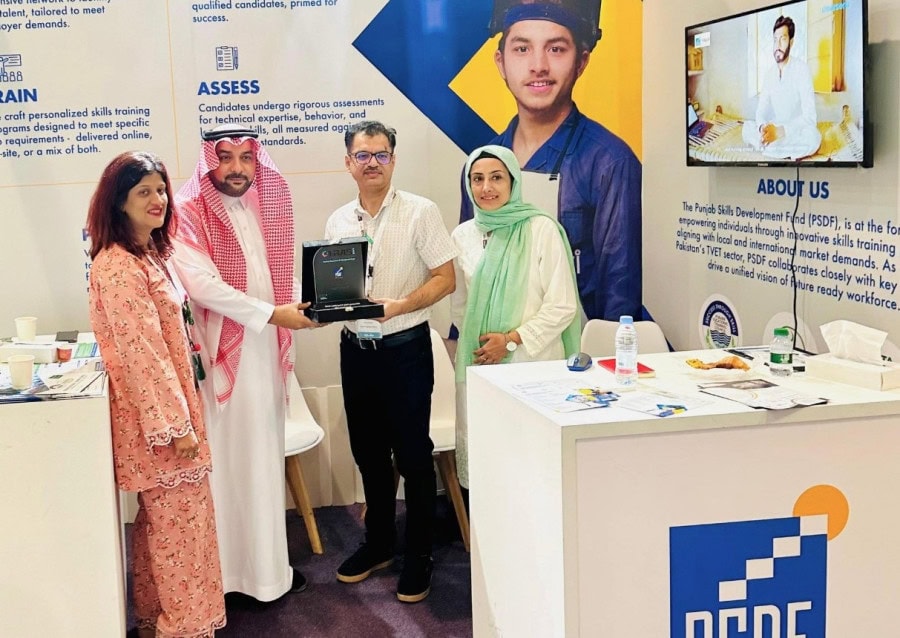LAHORE – The Punjab Skills Development Fund (PSDF) has launched ‘CM’s Skilled Punjab Program – International Placement’, the initiative aimed at opening global doors for Pakistan’s youth.
This program will prepare young Pakistanis with the tools they need to excel abroad, strengthening both their futures and Pakistan’s economy.
In 2021, remittances contributed a significant 21% to Pakistan’s GDP, highlighting their vital role in the nation’s economy. Recognizing this, PSDF has identified the Gulf Cooperation Council (GCC) region, particularly Saudi Arabia, as a key market for placing Punjab’s youth.
To support this vision, PSDF will provide skill development aligned with the specific demands of the international job market.
The initial phase of this program will provide demand-driven skills training and secure international job placements for 10,000 youth individuals in GCC markets. Moreover, the program will address high global demand for skilled labor in sectors such as healthcare, construction, hospitality, and retail. This 2-year program will encourage remittance inflows and will support the overall economic growth of Pakistan.
During the meeting, Chairperson of the CM Task Force on Skills Development, Adnan Afzal Chattha, stated, “This program is designed to provide comprehensive training across sectors, significantly improving the likelihood of successful international employment for the trainees.
“Moreover, this increased interaction will facilitate the exchange of technical expertise and best practices, creating a more efficient flow of information and fostering innovation between countries.”
This program aims not only to provide financial stability for the youth but also to alleviate the economic burden on the country by improving resource allocation. Additionally, by increasing the number of skilled workers employed abroad, Pakistan will benefit from the resulting remittances, which can contribute positively to the economy.
Ahmed Khan, CEO of PSDF, said, “This program can improve Pakistan’s global reputation as a source of highly skilled talent, consequently, attracting further international collaboration and investment.”









